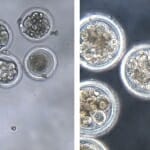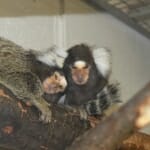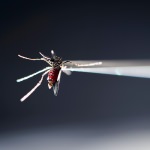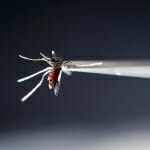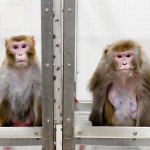Tag Primates
Zika virus infection may multiply risk of miscarriage, stillbirth
Researchers at six National Primate Research Centers (NPRCs) combined results from individual studies to find that 26 percent of pregnancies in 50 monkeys infected with Zika virus during the first trimester of pregnancy ended in miscarriage or stillbirth.
Monkeys infected by mosquito bites further Zika virus research
Monkeys who catch Zika virus through bites from infected mosquitoes develop infections that look like human Zika cases, and may help researchers understand the many ways Zika can be transmitted.
Karen Strier is elected president of International Primatological Society
For the first time in its 52-year history, the International Primatological Society has elected a University of Wisconsin–Madison scientist as its president: Karen Strier, Vilas Research Professor and Irven DeVore Professor of Anthropology.
Hormone known for mother’s milk also fosters bond between parents
Research has discovered a role for prolactin, the hormone that stimulates milk production in nursing mothers, in the bond between parents.
Noted primate expert to discuss primate behavior, research ethics
A scientist who has pioneered the study of cooperation in primates will be the featured speaker at a forum on the ethics of animal research at University of Wisconsin–Madison.
Study: Monkey mothers key to reproductive success of sons
If you are a male human, nothing puts a damper on romantic success like having your mother in tow. If you are a male northern muriqui monkey, however, mom’s presence may be your best bet to find and successfully mate with just the right girl at the right time, according to a study reported by UW–Madison anthropologist Karen B. Strier.

